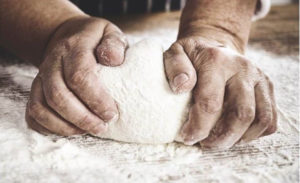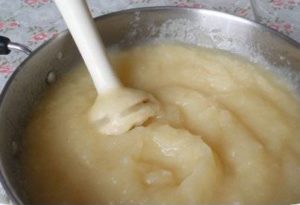 Bolzano and Bari, with their universities, will be part of a research project concerning digestibility of bread realised with yeast base and apple puree stuffing respectively. Professor Marco Gobbetti, microbiologist of food, will coordinate both projects, funded for a value of 80,000 Euros.
Bolzano and Bari, with their universities, will be part of a research project concerning digestibility of bread realised with yeast base and apple puree stuffing respectively. Professor Marco Gobbetti, microbiologist of food, will coordinate both projects, funded for a value of 80,000 Euros.
The first project will concern apple puree used as a filling for long-term bakery products. Confectionery industry often uses fruit-based products for filling such foods as snacks or cookies. To ensure the preservation of processed fruit, industry uses such treatments as pasteurization and cooking, or adds fruit with chemical preservatives, which however alter both appearance – consistency and colour – and organoleptic and nutritional characteristics. To avoid such invasive procedures, which deprive apple of flavour and substance, Marco Gobbetti and his team will test the fermentation of fruit puree, obtained through the use of lactobacilli. The microbiologist explains: ‘This technique would allow obtaining important characteristics in terms of sensory sensations, conservation and nutrition of the industrial product, almost equivalent to those of the fresh product’. This study has potentially a very high value for South Tyrolean fruit economy, based mainly on the cultivation of apples and grapes.
 The second study will concern digestibility of bread called ‘traditional’ or ‘typical’, prepared with yeast base, of which Professor Gobbetti is one of the world's leading experts. The study will test the actual higher digestibility of bread realised with this process compared to the ones that use chemical yeast or brewer's yeast. The digestibility of a baked food prepared with yeast base depends on the increased acidity of the latter. With fermentation obtained by using yeast base, bread polymers are hydrolyzed. Gobbetti explains: ‘It is as if there were a pre-digestion. So the product becomes lighter’. The product prepared with yeast base passes faster in the human body, avoiding the sensation of heaviness caused by products that have had a faster leavening’. The results of the study could be extraordinary: as a matter of fact, they would guarantee to those who sell baked products prepared with yeast base a sort of ‘quality seal’ compared to products obtained by leavening with brewer’s yeast or chemical yeast.
The second study will concern digestibility of bread called ‘traditional’ or ‘typical’, prepared with yeast base, of which Professor Gobbetti is one of the world's leading experts. The study will test the actual higher digestibility of bread realised with this process compared to the ones that use chemical yeast or brewer's yeast. The digestibility of a baked food prepared with yeast base depends on the increased acidity of the latter. With fermentation obtained by using yeast base, bread polymers are hydrolyzed. Gobbetti explains: ‘It is as if there were a pre-digestion. So the product becomes lighter’. The product prepared with yeast base passes faster in the human body, avoiding the sensation of heaviness caused by products that have had a faster leavening’. The results of the study could be extraordinary: as a matter of fact, they would guarantee to those who sell baked products prepared with yeast base a sort of ‘quality seal’ compared to products obtained by leavening with brewer’s yeast or chemical yeast.
Professor Stefano Cesco, dean of the Faculty, comments: ‘The two new research projects financed by third party resources (their sponsor is a producer, Puratos) represent an important signal about the direction towards which the Faculty of Science and Technology is moving: the strengthening of professionalism and knowledge in the field of food technology, a strategic sector for South Tyrolean economy, hand in hand with the search for partnerships and collaborations with the industry that focuses on innovation’.
